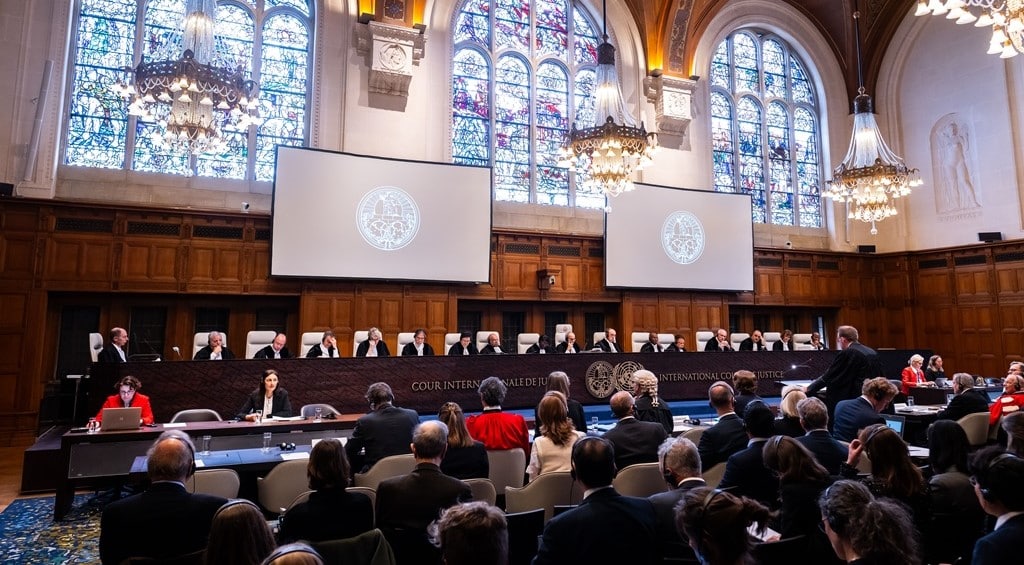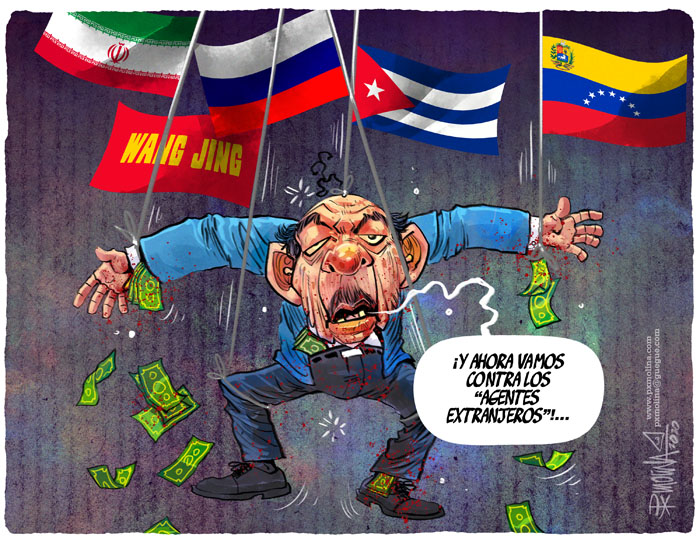16 de octubre 2020

ICJ Rules Against Nicaragua's Request For Germany to Halt Arms Sales to Israel

PUBLICIDAD 1M
PUBLICIDAD 4D
PUBLICIDAD 5D
With 70 votes in favor, and 17 opposed, the Sandinista deputies approved a law that segregates Nicaraguans into two groups.

With 70 votes in favor
The Nicaraguan National Assembly approved the controversial “Foreign Agents Law” Thursday with the votes of Ortega’s FSLN. The much-criticized law divides citizens into two categories: “true Nicaraguans” who support Ortega, and “foreign agents” who oppose him.
Since the Ortega regime controls the overwhelming majority of the National Assembly deputies, the decision was unsurprising. The Sandinista bloc – considered a steamroller – cast 70 votes in favor. Seventeen deputies, including those from Yatama and the PLC, opposed the law. Four members of the opposition abstained from voting.
After voting general approval of the Law, the Assembly immediately continued discussion of each particular article.
The legislation specifies that those who receive any foreign funds must register with the Interior Ministry. They must subsequently offer a detailed report of the funds they receive and how these will be used.
Opposition leaders allege that the law “segregates” Nicaraguans into two classes. There would be the “true” Nicaraguans on one side, and the “foreign agents” on the other. The classification of these would be at the discretion of the regime. Hence, those declared “foreign agents” are very likely to be those who oppose the government. Opponents maintain that this Law violates the rights of Nicaraguans.
Article 14 of the law establishes that those receiving foreign funds will not be able to realize certain activities. Such activities are loosely defined as those that interfere with “topics of internal and external politics”. The government has the discretion to determine when that occurs. The law also bans such “foreign agents” from “financing or promoting the financing of any kind of organization, movement, political party, coalition or political alliance or association that carries out internal political activities in Nicaragua.”
FSLN deputy Walmaro Gutierrez, president of the Production, Economic and Budget Commission, defended his party’s approval of the law. He called it a law to defend the country’s sovereignty, a ‘historic debt” that legislators owe the “Nicaraguan people.
Furthermore, Gutierrez said the Law for the Regulation of Foreign Agents “didn’t come from us [in the government]”. Instead, he stated, they reviewed legislation from North America, Asia, Europe and others. These were used as a reference before the plenary session approved the law, he noted.
In fact, critics have compared it to Russia’s foreign agent’s law, which they call the ‘Putin law’, approved in 2012.
Liberal Party deputy Walter Espinoza questioned the law during the National Assembly plenary session. “This is one more point on the Nicaraguan agenda for persecution. Do you believe you’re going to stop the Nicaraguan people, no matter what you do?”
Indigenous deputy Brooklyn Rivera from the Yatama party also spoke against the law during the session. He stated that this law affects the rights of the indigenous peoples and Afro-descendants. It “threatens with jail” all organization using their funds to defend the rights of these vulnerable sectors.
On October 13th, Vice President and official government spokesperson Rosario Murillo alleged the interference in Nicaragua’s peace “from outside”.
“Our peace has been interrupted from outside. It’s always from the outside, and with complicities that we have always denounced,” accused Murillo. The wife of President Daniel Ortega broadcasts a daily address over all government media channels.
Last Thursday, the European Parliament approved a resolution asking the European Union to consider new sanctions on the Ortega government. They asked for such sanctions if the Nicaraguan government approved a series of proposed new laws. These laws include the now-approved Foreign Agents law and an upcoming law against “Cybercrimes”.
The European Parliament also asked for sanctions if the Ortega regime does not agree to a national dialogue on electoral reforms. The Nicaraguan government’s reaction came from Murillo, demanding “respect for our sovereignty”.
Archivado como:
PUBLICIDAD 3M
PUBLICIDAD 3D